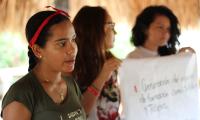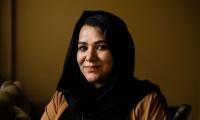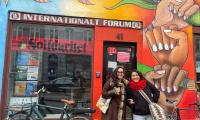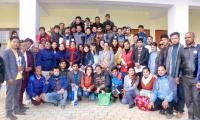Danish parties united for more female voices in local politics
Danish political parties work internationally for more gender equality. The message is clear: More women should take a seat at the political table in countries around the world during the upcoming local elections, including in Denmark.
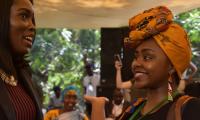
Women aspire to engage in politics but often face significant structural challenges when running for local elections. This holds true in most parts of the world.
Six Danish political parties have joined forces with international partners to address this issue. The change must come from within; political parties must actively work towards more equitable representation in local politics.
Only three countries have over 50% women in local politics.
Statistics and reports reveal that the representation of women in local politics lags significantly behind globally, including in Denmark. In only 20 countries worldwide, the representation of women in local politics is over 40%, and Denmark is not among them.
Despite Denmark's improvement over the years, with 36% of women elected in the latest municipal elections in 2021, progress is slow and requires deliberate and targeted efforts.
Globally, women make up approximately 35.5% of members of world local councils. The percentage of women in local councils varies globally, from under 1% in countries like Yemen and Oman to 66.7% in Antigua and Barbuda. Alongside Iceland and Bolivia, these are the only countries where over half of the locally elected officials are women.
Internal party culture is a barrier.
Although women in most countries have the right to run for local office, numerous obstacles hinder their entry into politics. Internal party culture poses one of many obstacles for female candidates. Encouraging women to run for office is less common compared to men. Political parties seldom place women as lead candidates even when they appear on the ballot.
Women to men's often stronger personal networks within political parties and mutual recommendations, women face challenges breaking through and attaining prominent positions. These challenges cut across countries, making shared experiences and solutions crucial. A partnership aims to counteract these challenges.
A cross-party partnership project.
To promote gender equality, six Danish political parties have formed an ambitious partnership project. The goal is clear: to ensure more women in local politics, both nationally and internationally.
Social Democrats, Venstre, Det Konservative Folkeparti, Enhedslisten, Socialistisk Folkeparti, and Radikale Venstre have come together to develop this cross-party partnership project. It is the first of its kind, in which parties collaborate on a common goal while involving each party's existing partners across countries.
The partnership, due to its unique form, covers significant parts of the world in different contexts and has partners in countries such as Georgia, Tanzania, Nepal, Thailand, Malaysia, the Philippines, Kenya, North Macedonia, Colombia, and, of course, Denmark.
Women in Nepal make up 41% of those elected in local politics, ranking the country ahead of Denmark in gender equality. In Colombia, women make up only 18%. Although the numbers vary for different countries, many of the challenges they face are similar.
Party leadership must drive real change.
The purpose of the Danish parties' partnership is for all partners, both international and Danish, to learn from, inspire, and challenge each other to advance women's representation and influence in political life.
There will be a particular focus on providing party leaders with insight into the use of concrete strategies and methods to promote gender equality. During the initial years, the involved parties will receive knowledge and tools to analyze and strategize for the party's internal representation. Subsequently, the parties will set realistic goals for increasing women's representation and influence by 2025.
The partnership aims to create tangible action, bringing countries together to make changes in our democratic system and ensure more women's voices in local politics.
